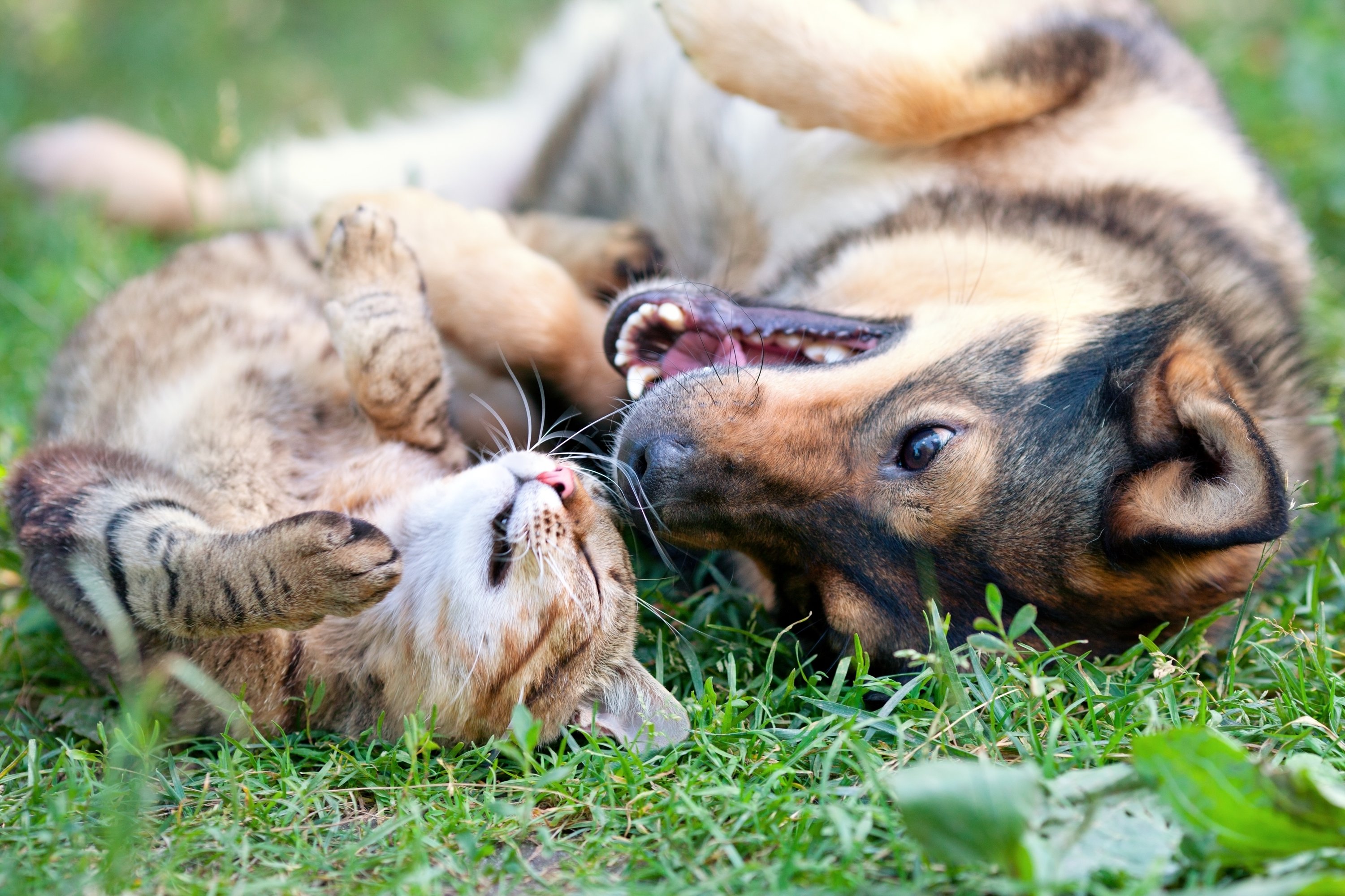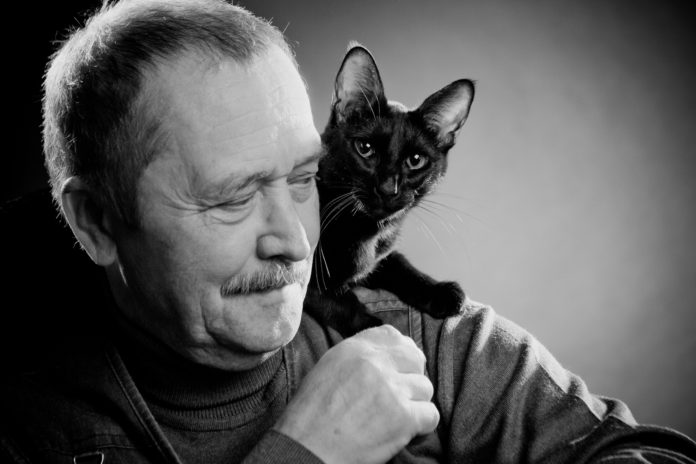Margo_soulxray|DepositPhotos

Like us, cats can mourn the loss of a loved one, such as a feline friend or their owner. They also experience stress over major life changes, like the loss of their home and moving to a new one. Each cat handles big changes in a different way, and while some cats will seem to go about their lives with no issue, others can exhibit dramatic behavior changes.
“Vocalizations and loss of appetite are the most common signs,” says Katherine Houpt, VMD, PhD, DACVB, Cornell James Law Professor of Behavior Medicine, emeritus. Cats can also exhibit signs of depression by “not playing or being as active as usual.” Other behavioral changes may also occur that indicate the cat is greatly saddened.
Dr. Houpt recalls a client who owned several Siamese cats that grew up and lived together. Gradually, each of the cats aged and died. One of the last two cats was blind and the other cat acted as a seeing-eye cat to guide the blind cat around the house. When the blind cat passed away, the seeing-eye cat was distraught and clearly mourned by meowing excessively, as if calling for the lost friend.
Not Eating is Cause for Concern
When should owners be concerned? The most dangerous symptom of feline grief is anorexia, especially if the cat is overweight. When a cat stops eating, the cat’s body starts to break down fat stores for energy. This can lead to hepatic lipidosis, also known as fatty liver disease, a life-threatening condition that requires immediate veterinary intervention (see our August 2017 issue for more information).
Try to entice the cat with tasty foods, such as canned food warmed up in the microwave to bring out its scent or bits of meat mixed in with her regular diet. If these methods don’t work, schedule an appointment with your veterinarian, who can prescribe medications to stimulate your cat’s appetite and will make sure that there aren’t any other underlying medical conditions.
Behavioral changes that last longer than 10 days also call for veterinary attention. Stress has a variety of detrimental effects on the body, so a medication may be necessary to break the cycle and alleviate the cat’s anxiety. There are a variety of medications that can be used for feline anxiety, including fluoxetine and clomiprimine.
What You Can Do
How can owners help? There are a variety of things that you can do to help your cat if she is showing signs of grief. Pet her and interact with her. Try to alleviate stress by keeping her routine as close to normal as possible. For a cat who has lost her owner, see if other family members know her usual feeding schedule. Cats don’t like change, so in the face of a major life disruption, it is beneficial to keep as many of the smaller details consistent as possible.
Play is a great way to keep your cat busy and active. As we know from human research, exercise helps to reduce stress and anxiety. Playing will also distract your cat from thinking about her lost friend. Feathers and toy mice on strings are a great option, and rolling food-dispensing treats are excellent aids for encouraging predatory behavior and tuning in to your cat’s natural hunting instincts.
Don’t hesitate to ask your veterinarian about anti-anxiety medications if your cat’s behavior changes persist or are potentially endangering her health.
Time to Adjust
For a cat unhappy about moving to a new home, patience is in order. “Cats often take several weeks to adjust to a new home,” says Dr. Houpt.
Keep feeding schedules the same as in the previous house and encourage your cat to play and be active. Keep all of her old beds and cat trees rather than getting new ones right away so that she has all of her things that smell familiar. Over time she will explore the new house and claim it as her own.

Ways to Help Your Cat Adjust
Think about what the loss caused to change in her life
A cat who is lonely after the loss of an elderly owner might be happiest in a similar household because she is used to having a person around all day long as opposed to moving in with a working couple. While Dr. Houpt doesn’t generally recommend this approach, sometimes getting another cat is the best solution for a cat who has lost a friend. For the Siamese seeing-eye cat in our story, having a new buddy to interact with made a huge difference and resolved her loneliness.




